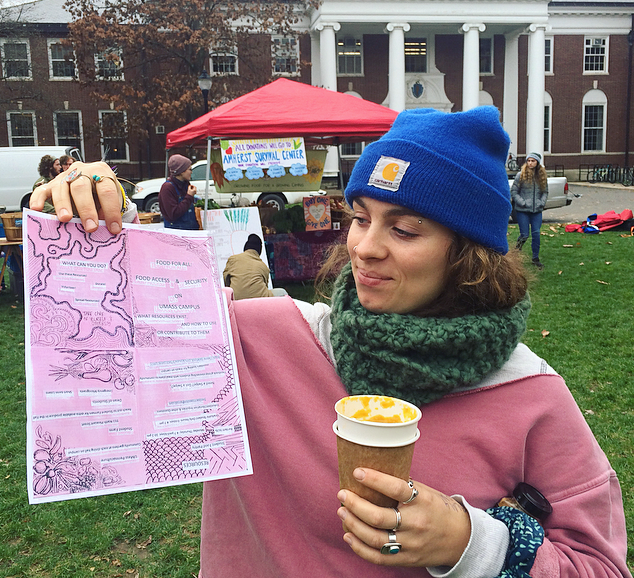
This fall, Stockbridge revived an old course–and was met with lots of positive feedback. Led by the thoughtful instruction of professor Sarah Berquist, students in Retail Floral Design (STOCKSCH 210) combined 2.5 hours of weekly class time with a host of hands-on opportunities to practice fresh and dried floral design (and flower farm work!). And none of this would be possible without Sarah’s beautiful flowers, grown at Astarte Farm in Hadley, which she graciously donated to build this program. Sarah connected her class with paying customers on campus, including UMass Dining, the Student Farmers Market, and the Chancellor’s House event staff, among others, and the class made arrangements for 11 events, two markets, and a large installation.
Some passionate students share their experiences in Retail Floral Design below:
Alison Dembek
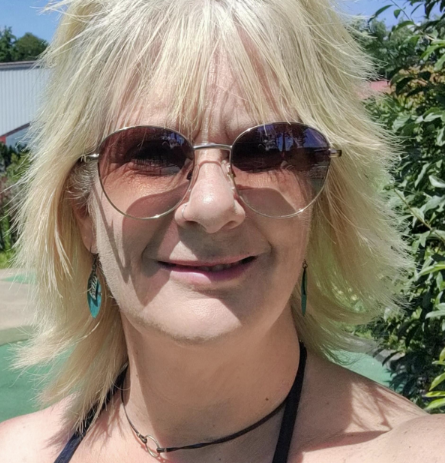
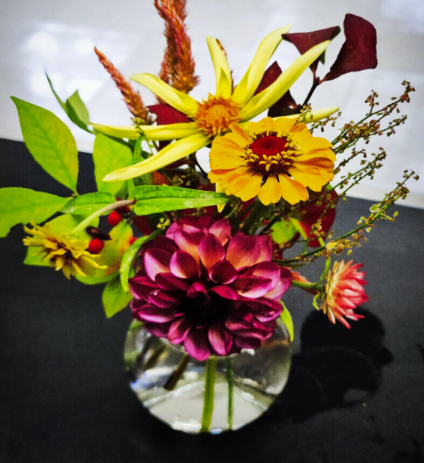
(Above) Bud Vases we made for the Chancellor’s house!
“Retail “Floral Design opened my eyes to a new direction in my Sustainable Food and Farming degree. This class sparked a greater love for flowers and has inspired me to consider my future as a flower farmer and possible designer. As a result of this class, I gained a great deal of knowledge regarding the implementation of sustainable practices within the floral industry, including promoting local flowers, using alternatives to floral foam and reducing the carbon footprint. This new path aligns with my passion for sustainability and presents me with the potential to make a positive impact in the industry. The prospect of combining my background as a Sustainable Food and Farming major with the beauty of flower farming and design is exciting to me.”
Irely Knox
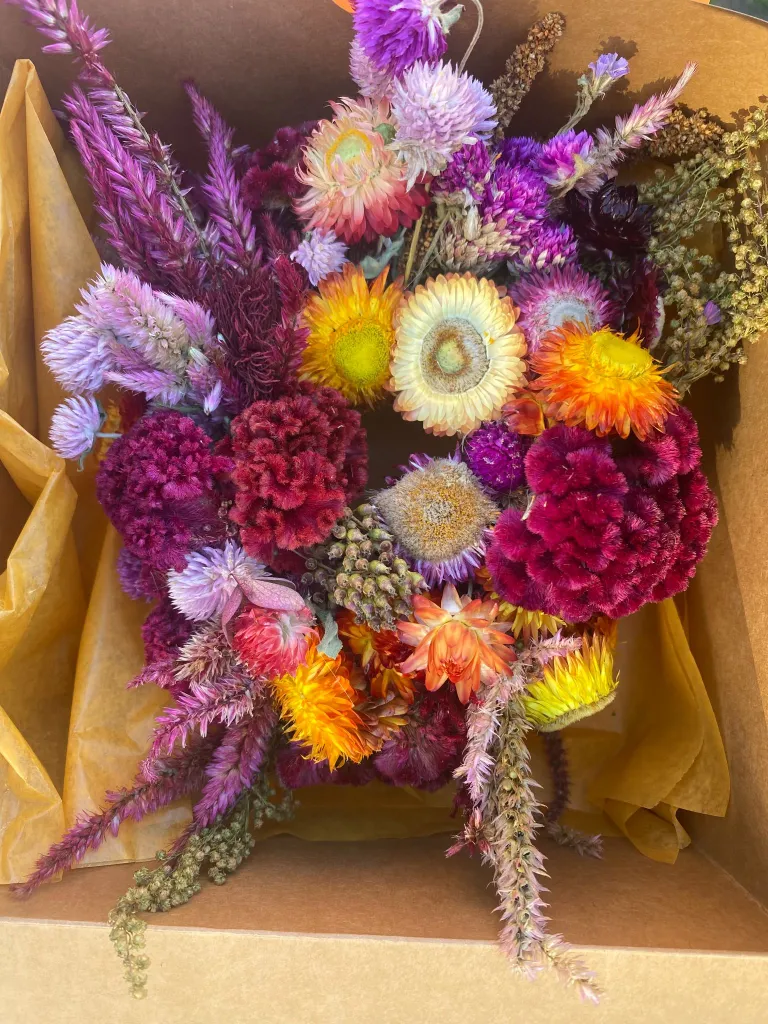
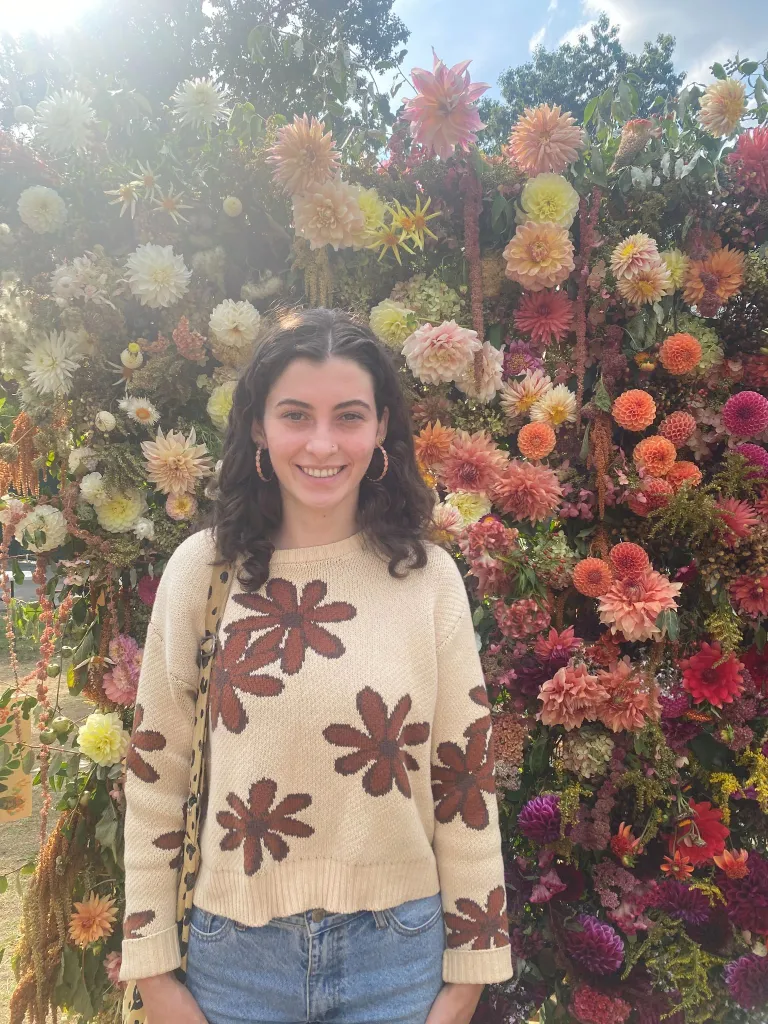
(Above) Dried Floral Wreath!
“I have really enjoyed my experience this semester, especially the hands-on practice hours and classwork. The most meaningful part of the class was being able to collaborate with other people who are passionate about flowers! Not only did I learn from Sarah, I also learned a lot from my classmates especially when collaborating on arrangements and projects. In the past, I have been more independent when it comes to creative/artistic work, but in Retail Floral Design I was always inspired by what everyone else was doing, which makes me excited to collaborate with others on future creative projects.”
Natalie Straub
“Being a part of the Retail Floral Design class was very inspiring and motivating. During this experience, the most meaningful part would have to be working with an awesome group of people to create beautiful bouquets. I loved how much group and independent work we did during this class, it allowed for us to find our own floral design style while getting feedback from peers. There was so much about floral design and the floral business industry that I took from this class. I’m hoping to apply my learnings about bouquet making techniques and tips on the business side of flowers into my future.”
Berlyn Ellsworth
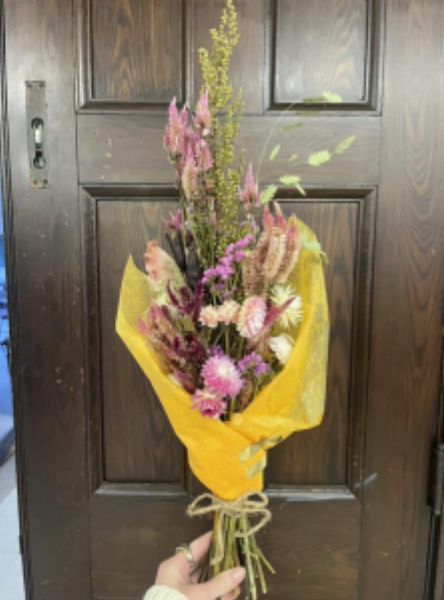
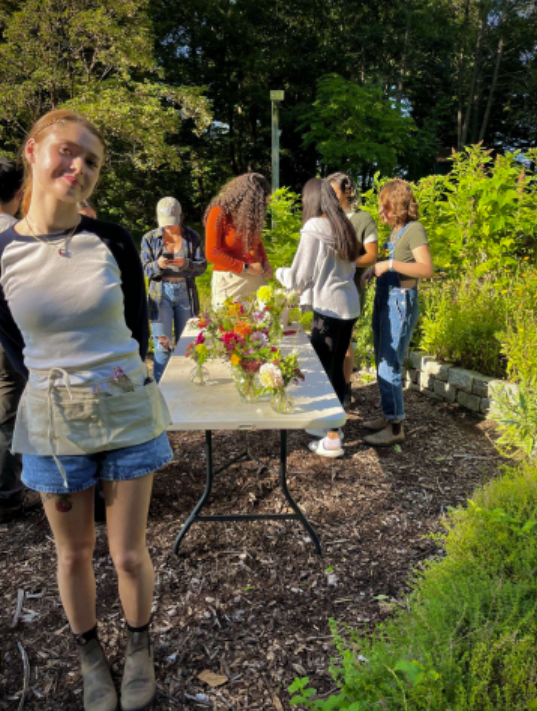
(Above) Dried flower bouquet made for the student farmers market.
“This semester I have been a proud member of the Retail Floral Design class. As a Stockbridge student I encounter lots of fun hands-on classes, but nothing holds a candle to the floral design class. The classroom has been a warm and welcoming space. Sarah has done a wonderful job giving us inspiring direction for both collaborative and independent work in and outside of the classroom. Our projects are incredibly fulfilling to make and I love having something beautiful I can bring back to my dorm. I enjoyed this class so much I have decided to pursue a farmer-florist job over the summer!”
Make sure to add STOCKSCH 210 to your schedule next fall if this class sounds exciting to you!
Below are pictures from our floral wall installation at the Student Farmers Market in September.



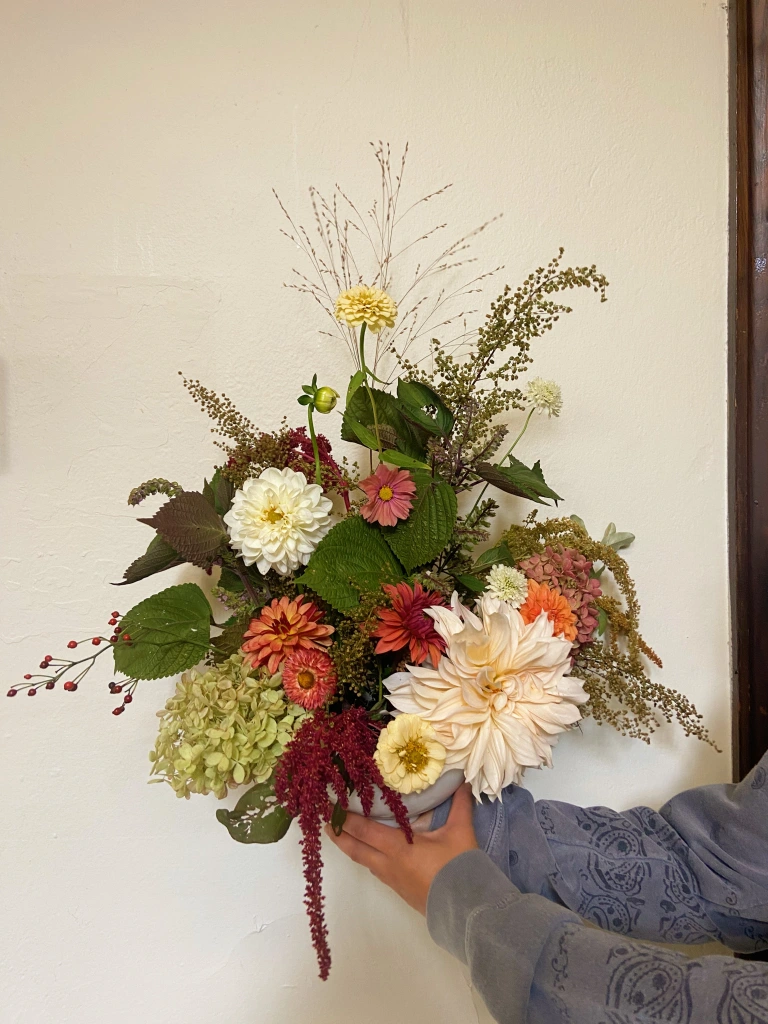
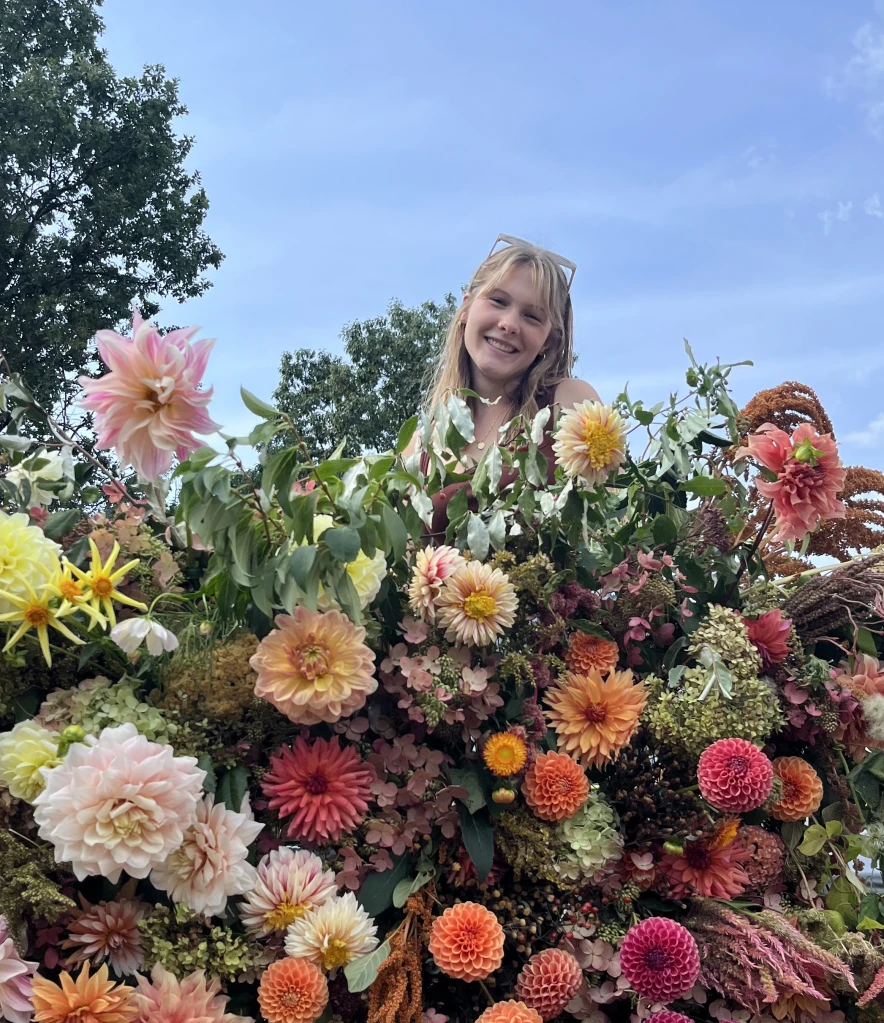

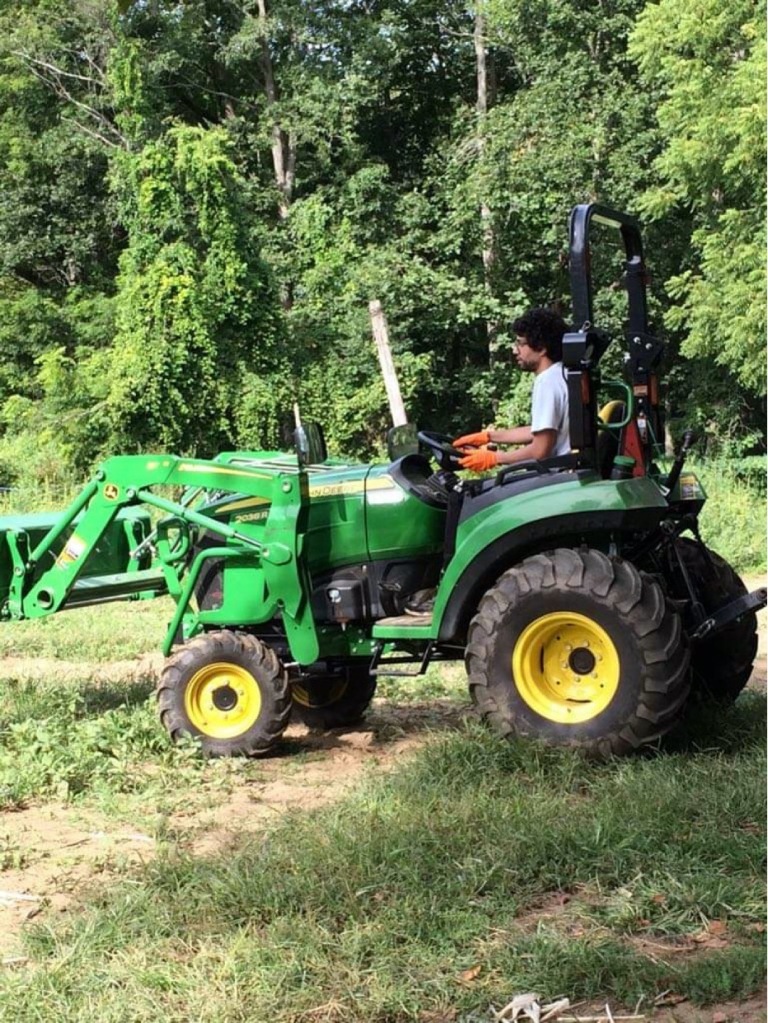
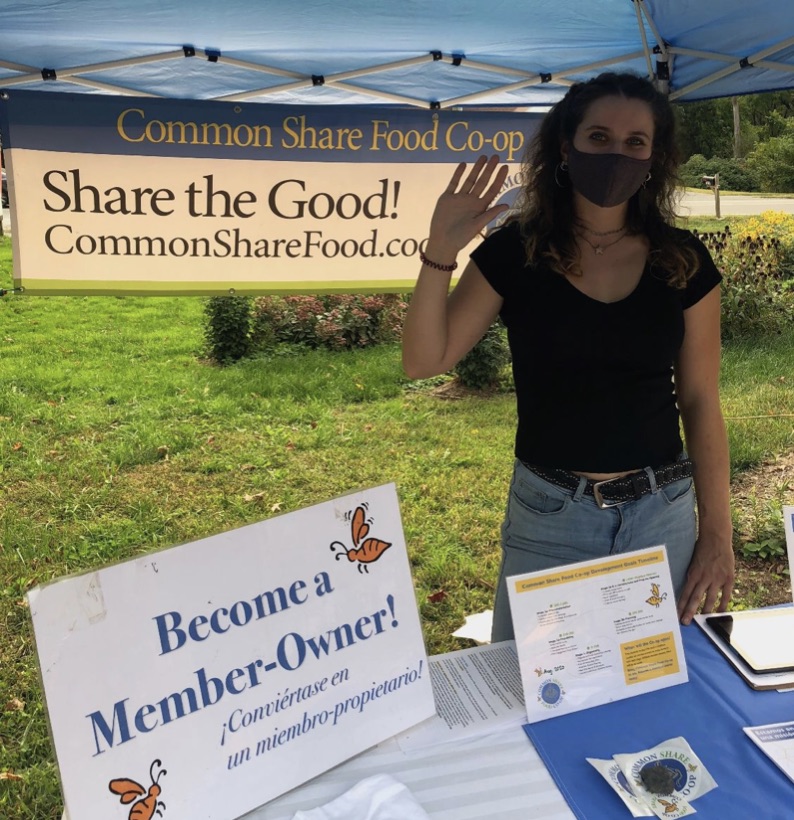
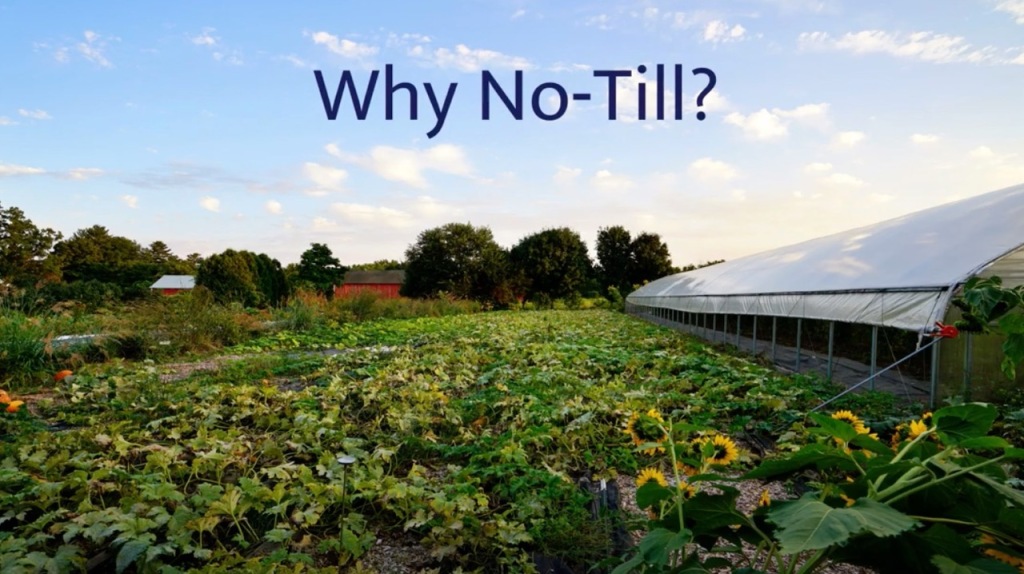

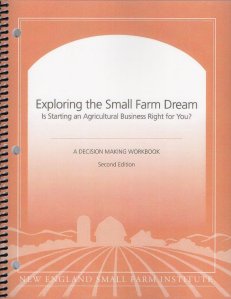














 degree program in the Stockbridge School of Agriculture, Sarah Berquist, was chosen as the 2019 recipient of the Massachusetts Distinguished Service Award by Phi Kappa Phi, the nation’s oldest, largest, and most selective all-discipline honor society. According to society President, Professor Theresa Y. Austin, the UMass Chapter recognized Ms. Berquist for her outstanding service to the University in ways that are consistent with the Society’s motto of “Let the love of learning rule.”
degree program in the Stockbridge School of Agriculture, Sarah Berquist, was chosen as the 2019 recipient of the Massachusetts Distinguished Service Award by Phi Kappa Phi, the nation’s oldest, largest, and most selective all-discipline honor society. According to society President, Professor Theresa Y. Austin, the UMass Chapter recognized Ms. Berquist for her outstanding service to the University in ways that are consistent with the Society’s motto of “Let the love of learning rule.” 